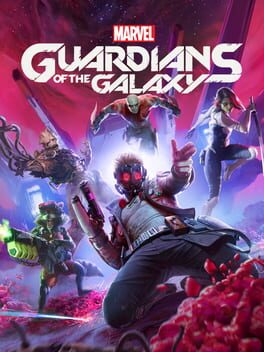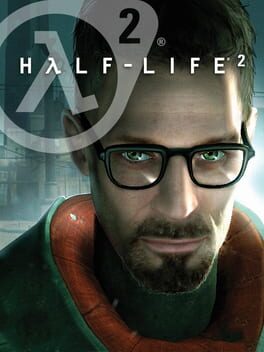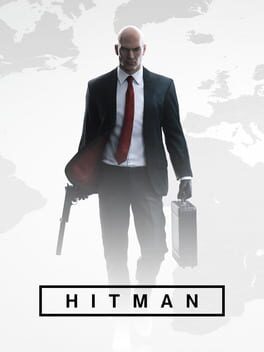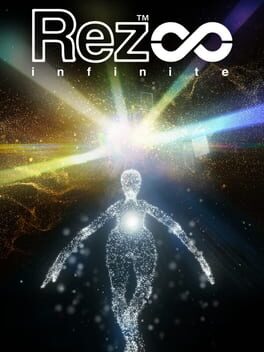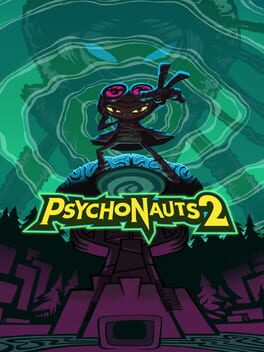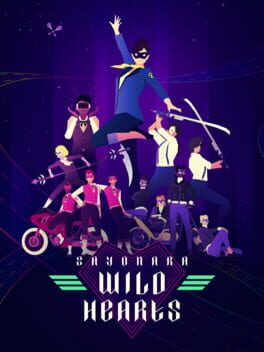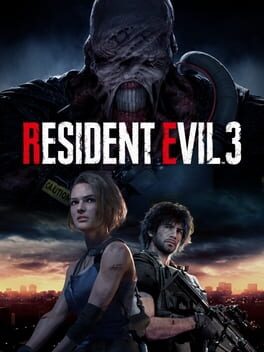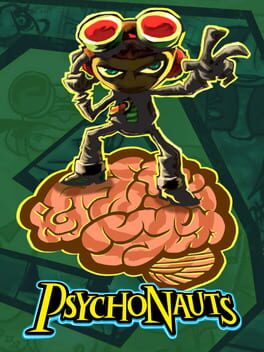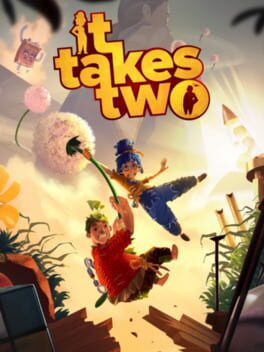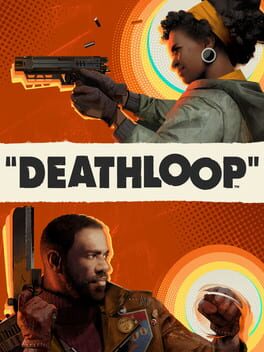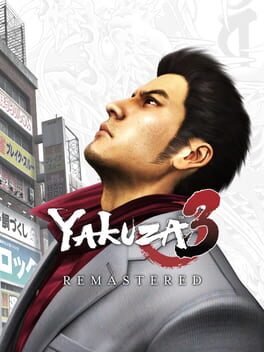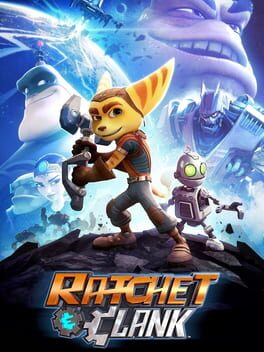emilem
Guardians of the Galaxy advertises itself as a character-action adventure game, but there's not where its strength lies. What GotG really is, is a stellar narrative experience with some combat peppered in between.
Starting with the negative, which unfortunately is the action. Don't get me wrong, for a game that has you fighting off swarms of enemies while juggling your four companions as well as your own abilities, it does quite well. All members of the team carry their weight and I frequently used their powers. Problem is that in general it feels very clunky, and really when the combat is this fast paced you want it to snap a little better. I think with a few tweaks a prospective sequel could really nail it, but it falls short this time around.
But again, the combat isn't what you're here for, it's the stunning narrative. Leading the guardians together through their quests and getting to know each otf them along the way. The best parts of the game are when you're walking with the team, making observations about the world around you, choosing the right things to say. These little moments are remembered throughout, so something you may have said earlier will come back in full force later in the game. Team members will really appreciate what Star Lord may do for them.
It's a thing that narrative games don't do often, they focus a lot on the bigger picture. Which is fine, but when your branching narrative focuses on the snowball of littler choices (do I throw Rocket across? Do I pay off the fine? Do I just choose to shut up at this moment?), then the characters really start to feel alive. You get to know their quirks and personalities, and suddenly the Guardians feel much more like YOUR team.
Don't go into Guardians of the Galaxy expecting an action romp, because really the combat begins to wear thin by the third act. The story on the other hand? That'll keep you hooked long past the credits.
Starting with the negative, which unfortunately is the action. Don't get me wrong, for a game that has you fighting off swarms of enemies while juggling your four companions as well as your own abilities, it does quite well. All members of the team carry their weight and I frequently used their powers. Problem is that in general it feels very clunky, and really when the combat is this fast paced you want it to snap a little better. I think with a few tweaks a prospective sequel could really nail it, but it falls short this time around.
But again, the combat isn't what you're here for, it's the stunning narrative. Leading the guardians together through their quests and getting to know each otf them along the way. The best parts of the game are when you're walking with the team, making observations about the world around you, choosing the right things to say. These little moments are remembered throughout, so something you may have said earlier will come back in full force later in the game. Team members will really appreciate what Star Lord may do for them.
It's a thing that narrative games don't do often, they focus a lot on the bigger picture. Which is fine, but when your branching narrative focuses on the snowball of littler choices (do I throw Rocket across? Do I pay off the fine? Do I just choose to shut up at this moment?), then the characters really start to feel alive. You get to know their quirks and personalities, and suddenly the Guardians feel much more like YOUR team.
Don't go into Guardians of the Galaxy expecting an action romp, because really the combat begins to wear thin by the third act. The story on the other hand? That'll keep you hooked long past the credits.
2015
Bloodborne made me understand the Souls games.
If you find yourself struggling with other FromSoft titles, if you feel like you're missing something that's preventing you from getting the hype, give Bloodborne a go. The game starts by refusing to give you a weapon until you die, and at that, never gives you a shield.
From the get go you are told to throw yourself into situations, never play defensively, and keep moving. It made me realise that the shield was quite possibly the most crippling thing Dark Souls could give me because it makes me believe that it's a core part of the game, when it really should be a suggestion. Now that it's not here, I know HOW to play.
And even all this aside, Bloodborne is just a spectacular game, the lore is engaging, the environments are stunning, gameplay feels absolutely crisp and the enemies are pretty well balanced. There's a few that can get you caught up in shitty loops, but they are a relatively rare occurance.
I can see why Bloodborne gets all this praise, it's shown me how to enjoy these games, and done so by showcasing the best it has to offer.
If you find yourself struggling with other FromSoft titles, if you feel like you're missing something that's preventing you from getting the hype, give Bloodborne a go. The game starts by refusing to give you a weapon until you die, and at that, never gives you a shield.
From the get go you are told to throw yourself into situations, never play defensively, and keep moving. It made me realise that the shield was quite possibly the most crippling thing Dark Souls could give me because it makes me believe that it's a core part of the game, when it really should be a suggestion. Now that it's not here, I know HOW to play.
And even all this aside, Bloodborne is just a spectacular game, the lore is engaging, the environments are stunning, gameplay feels absolutely crisp and the enemies are pretty well balanced. There's a few that can get you caught up in shitty loops, but they are a relatively rare occurance.
I can see why Bloodborne gets all this praise, it's shown me how to enjoy these games, and done so by showcasing the best it has to offer.
2004
It's difficult to give games a perfect score, there's always something wrong with a game which keeps it just short of a 10. But the only thing I dislike about HL2 is so nitpicky and only applies in some sections.
Sometimes the route forward isn't clear. That's it, only sometimes I had to spend 5 minutes figuring out what was next. Like three times tops.
That aside, Half Life 2 is a masterclass in games design. This game is 16 years old and I am hard pressed to think of games that do a linear, story driven FPS as good as this one. Every encounter is a puzzle, the environment is your weapon, even the enemies can be your weapon. There's so many ways to tackle encounters and they make you feel like a genius.
And like design aside how has barely any dev team managed to match the physics of this game, the ragdolls alone feel absolutely perfect. Ravenholm is a complete masterpiece of physics-based game design that feels fun throughout.
And everytime I reached a puzzle I was absolutely expecting the dreaded "place a janky path and do your own hellish jumping puzzle" which a lot of these games are guilty of, but it happens ONCE, and it's a SUPER EASY puzzle, because Valve know how to make FUN.
That's it, everything I have to say is just gushing about this game, it's incredible, its barely aged, it deserves the pedastal it has been on for nearly two decades now. It is Half Life.
Sometimes the route forward isn't clear. That's it, only sometimes I had to spend 5 minutes figuring out what was next. Like three times tops.
That aside, Half Life 2 is a masterclass in games design. This game is 16 years old and I am hard pressed to think of games that do a linear, story driven FPS as good as this one. Every encounter is a puzzle, the environment is your weapon, even the enemies can be your weapon. There's so many ways to tackle encounters and they make you feel like a genius.
And like design aside how has barely any dev team managed to match the physics of this game, the ragdolls alone feel absolutely perfect. Ravenholm is a complete masterpiece of physics-based game design that feels fun throughout.
And everytime I reached a puzzle I was absolutely expecting the dreaded "place a janky path and do your own hellish jumping puzzle" which a lot of these games are guilty of, but it happens ONCE, and it's a SUPER EASY puzzle, because Valve know how to make FUN.
That's it, everything I have to say is just gushing about this game, it's incredible, its barely aged, it deserves the pedastal it has been on for nearly two decades now. It is Half Life.
2016
For a game that gives you a lot of freedom, it feels intent on holding your hand.
Each level is incredibly detailed, a true spectacle of level design and a veritable assassins playground, but I guess it's indicative of modern games in that it never wants to let go of the players hand and risk alienating them.
You can turn the opportunities off, and I highly recommend doing that otherwise the game becomes a paint-by-numbers challenge. But even with that off you get the NPCs playing Extras just waiting for 47 to walk by so they can loudly announce the targets achilles heel.
It's a let down but it doesn't diminish the quality of the game, everything from the design, art, to the voices are immaculate, if you can look past why citizens in Paris sound eerily similar to the ones in Marrakesh.
Hitman is a wonderful entry into the series, I just wish they would make it a bit more of a challenge, and push players outside their comfort zones rather than letting them follow a linear path, especially when they've designed such a rich series of levels to explore.
Each level is incredibly detailed, a true spectacle of level design and a veritable assassins playground, but I guess it's indicative of modern games in that it never wants to let go of the players hand and risk alienating them.
You can turn the opportunities off, and I highly recommend doing that otherwise the game becomes a paint-by-numbers challenge. But even with that off you get the NPCs playing Extras just waiting for 47 to walk by so they can loudly announce the targets achilles heel.
It's a let down but it doesn't diminish the quality of the game, everything from the design, art, to the voices are immaculate, if you can look past why citizens in Paris sound eerily similar to the ones in Marrakesh.
Hitman is a wonderful entry into the series, I just wish they would make it a bit more of a challenge, and push players outside their comfort zones rather than letting them follow a linear path, especially when they've designed such a rich series of levels to explore.
1999
Proof that just because something is revolutionary, doesn't mean it's good.
I'm 20 years late on this one, and maybe that's why I'm missing the appeal of the game because I don't have the nostalgia glasses on, but I really don't understand the hype that Shenmue gets.
Sure, the NPCs have routines, and sure you can talk with all of them in this immersive world. But when 99% of the NPCs regurgitate the same responses, refuse to talk to you, or just point you in the direction of the 1% you DO need to talk to, what is that adding to the game?
All of the ideas presented by Shenmue are good on paper, but executed poorly. Exploring the world to investigate a mystery? Good! Having the "investigation" be asking people the same questions ad infinitum until exposition happens? Not so good. A day night cycle with characters following a routine? Good! Locking players off from certain things until a certain time and not allowing them to advance time in hour-long loops? Not good. I mean for gods sake the whole game up until finding Charlie is a wild goose chase that leads nowhere until you get the Chinese letter!
I'll admit that Shenmue popularised a lot of really interesting mechanics, I won't say it introduced them when examples can be see elsewhere (see Mizzurna Falls doing a lot of what Shenmue did the year prior), but when they're presented like this it makes for a slog that doesn't want to show off the one feature the whole concept was based around; the fighting, which is actually really good!
I'm sure we haven't seen the last of Shenmue, and I will play the others, so I only hope that they learn to take these incredibly interesting ideas and really show what you can do with them, realism is all well and good but when you try to make a game too realistic, you end up losing what makes a video game fun.
I'm 20 years late on this one, and maybe that's why I'm missing the appeal of the game because I don't have the nostalgia glasses on, but I really don't understand the hype that Shenmue gets.
Sure, the NPCs have routines, and sure you can talk with all of them in this immersive world. But when 99% of the NPCs regurgitate the same responses, refuse to talk to you, or just point you in the direction of the 1% you DO need to talk to, what is that adding to the game?
All of the ideas presented by Shenmue are good on paper, but executed poorly. Exploring the world to investigate a mystery? Good! Having the "investigation" be asking people the same questions ad infinitum until exposition happens? Not so good. A day night cycle with characters following a routine? Good! Locking players off from certain things until a certain time and not allowing them to advance time in hour-long loops? Not good. I mean for gods sake the whole game up until finding Charlie is a wild goose chase that leads nowhere until you get the Chinese letter!
I'll admit that Shenmue popularised a lot of really interesting mechanics, I won't say it introduced them when examples can be see elsewhere (see Mizzurna Falls doing a lot of what Shenmue did the year prior), but when they're presented like this it makes for a slog that doesn't want to show off the one feature the whole concept was based around; the fighting, which is actually really good!
I'm sure we haven't seen the last of Shenmue, and I will play the others, so I only hope that they learn to take these incredibly interesting ideas and really show what you can do with them, realism is all well and good but when you try to make a game too realistic, you end up losing what makes a video game fun.
2016
I'm not one to call a game perfect, there's always something that could be improved to make it just right. But Rez is perfect.
It accomplishes what it set out to do. It's an art piece, an audio and visual spectacle, a skillful shooter. It was all of these things when it came out 20 years ago and Infinite adds more. It's somehow like this game was made for VR, before VR was anywhere near what it is today. And Area X is something to behold.
All of that aside, the core five areas of Rez are unforgettable, weaving you through a story that says so much while barely saying anything at all. All while providing a rhythmic on rails shooter that's all killer and no filler.
I could go on singing this games praises for eternity, and I'm sure I will, but it's best experienced yourself. Find some headphones, dim the lights, grab your controller.
Welcome to Synaesthesia.
It accomplishes what it set out to do. It's an art piece, an audio and visual spectacle, a skillful shooter. It was all of these things when it came out 20 years ago and Infinite adds more. It's somehow like this game was made for VR, before VR was anywhere near what it is today. And Area X is something to behold.
All of that aside, the core five areas of Rez are unforgettable, weaving you through a story that says so much while barely saying anything at all. All while providing a rhythmic on rails shooter that's all killer and no filler.
I could go on singing this games praises for eternity, and I'm sure I will, but it's best experienced yourself. Find some headphones, dim the lights, grab your controller.
Welcome to Synaesthesia.
2021
Psychonauts 2 is a platforming treat, but I feel like it's lost something that the original had.
Don't get me wrong, it's a stunning game. Visually it's a marvel, it has some really great characters, wonderful soundtrack and some great level design.
My problem, which is a personal one and in no way detracts from the game, is that it lost the point n' click elements. The first game was very clearly made by LucasArts vets, and used the inventory system while solving puzzles, albeit lightly.
But it was levels like the Milkman and getting past the Orderly that made Psychonauts so memorable, it was a problem solving game, and it's a shame to see them move away from that (in their defence, it has been nearly 20 years.)
What Psychonauts loses in that aspect it makes up for everywhere else, and I really do hope we get to see more of this world again in the future.
Don't get me wrong, it's a stunning game. Visually it's a marvel, it has some really great characters, wonderful soundtrack and some great level design.
My problem, which is a personal one and in no way detracts from the game, is that it lost the point n' click elements. The first game was very clearly made by LucasArts vets, and used the inventory system while solving puzzles, albeit lightly.
But it was levels like the Milkman and getting past the Orderly that made Psychonauts so memorable, it was a problem solving game, and it's a shame to see them move away from that (in their defence, it has been nearly 20 years.)
What Psychonauts loses in that aspect it makes up for everywhere else, and I really do hope we get to see more of this world again in the future.
2019
What Sayonara Wild Hearts lacks in length, it more than makes up for in spectacle. It's quick to grasp, but hard to master, has a truly incredibly soundtrack, and gorgeous visuals.
I've only played through it once so far, but I have no doubt I'll replay it for years and years to come. Its immensely satisfying, and feels like it rewards you for learning it.
It's the only game I can think of that's comparable to Rez, and I really do wish I could say that about more games.
I've only played through it once so far, but I have no doubt I'll replay it for years and years to come. Its immensely satisfying, and feels like it rewards you for learning it.
It's the only game I can think of that's comparable to Rez, and I really do wish I could say that about more games.
2020
It's odd that they decided to do a Resi 3 remake in the same vein as Resi 2, because all it does is highlight the worst aspects of the RE Engine
Resident Evil 3 opts for a more linear, action-centric design, throwing more enemies at you and stripping away the puzzles. This is, at it's core, the biggest issue with the original in general. Resi 1 and 2 are puzzle games, point n' click games with guns, exploring the Arklay Mountains and the R.P.D. Station is the main draw, figuring out where to go next and conserving your ammo by tactically moving around enemies.
Having this element removed, and instead throwing endless ammo at you, is far less interesting. The game quickly becomes a drag, even more so when the only enemy is Nemesis and the only tactic to killing him is throw more bullets at him.
This is a problem with the core design, but it really doesn't do the updated engine any favours. Leon and Claire's weighty, slow movement complimented the haunted corridors of the police station, but when that's traded in for something more action-focused, Jill's slow movement is just frustrating. They try to alleviate this by adding a dodge function, but it's so clunky and the hit boxes are so big for the zombies to grab you that it's just as annoying.
It doesn't really add much to the overall story either, it adds some nice bits of additional detail to Resi 1 and 2, but that's all it really does.
Overall, the Resi 3 remake could have done a lot more to add to the original. In all honestly, Resident Evil 1 was more in need of a remake like this, and all this does is make me concerned for the supposed remake for Resident Evil 4.
Resident Evil 3 opts for a more linear, action-centric design, throwing more enemies at you and stripping away the puzzles. This is, at it's core, the biggest issue with the original in general. Resi 1 and 2 are puzzle games, point n' click games with guns, exploring the Arklay Mountains and the R.P.D. Station is the main draw, figuring out where to go next and conserving your ammo by tactically moving around enemies.
Having this element removed, and instead throwing endless ammo at you, is far less interesting. The game quickly becomes a drag, even more so when the only enemy is Nemesis and the only tactic to killing him is throw more bullets at him.
This is a problem with the core design, but it really doesn't do the updated engine any favours. Leon and Claire's weighty, slow movement complimented the haunted corridors of the police station, but when that's traded in for something more action-focused, Jill's slow movement is just frustrating. They try to alleviate this by adding a dodge function, but it's so clunky and the hit boxes are so big for the zombies to grab you that it's just as annoying.
It doesn't really add much to the overall story either, it adds some nice bits of additional detail to Resi 1 and 2, but that's all it really does.
Overall, the Resi 3 remake could have done a lot more to add to the original. In all honestly, Resident Evil 1 was more in need of a remake like this, and all this does is make me concerned for the supposed remake for Resident Evil 4.
2005
It's honestly surprising that after nearly 20 years, Psychonauts doesn't have many copycats.
From a surface level, Psychonauts is a platforming adventure game, with elements of a collect-a-thon scattered here and there. But dive deeper and you'll find it has the heart of a Point-n-click adventure buried within, which is no surprise given the LucasArts lineage that developed this game.
In some areas it hasn't aged well, platforming can be janky (especially with Levitation) and most of the bosses are either painfully tedious or shockingly easy. But so much of it is a distinct and vibrant romp, from characters, levels, and gameplay design, it sticks out far above the rest.
From a surface level, Psychonauts is a platforming adventure game, with elements of a collect-a-thon scattered here and there. But dive deeper and you'll find it has the heart of a Point-n-click adventure buried within, which is no surprise given the LucasArts lineage that developed this game.
In some areas it hasn't aged well, platforming can be janky (especially with Levitation) and most of the bosses are either painfully tedious or shockingly easy. But so much of it is a distinct and vibrant romp, from characters, levels, and gameplay design, it sticks out far above the rest.
2021
What an absolutely wonderful game this is, in terms of pure design alone.
It Takes Two has this completely ingenious tactic to keep things fresh, it keeps rotating mechanics in and out for May and Cody every few levels, and yet manages to keep the control bindings synonymous throughout. Not only does this keep the game from becoming stale, but it makes it so easy to adapt to these new ideas.
And they're all executed so beautifully, all the toys are fully realised, and with almost all of them me and my partner had a "Woah! That's so cool!" moment. Some of them are dropped pretty quick, and it would have been cool to have seen more use out of stuff like the mega-magnets or the magic-robes that May and Cody pick up, but most of the time it felt like the mechanics were dropped at just the right time to bring in a new one and keep engagement up.
And really that's the core appeal of It Takes Two; the fully-loaded arsenal of ideas, minigames included. It's essentially an arcade of cool mechanics and games to play with a friend. The story is charming too; Even if it does simplify rather complex emotions and issues in some cases, you can't help but get attached to the heroes. It leaves things somewhat open-ended too, which I think is a fitting way to close the Doctor Hakim's Book of Love.
It Takes Two has this completely ingenious tactic to keep things fresh, it keeps rotating mechanics in and out for May and Cody every few levels, and yet manages to keep the control bindings synonymous throughout. Not only does this keep the game from becoming stale, but it makes it so easy to adapt to these new ideas.
And they're all executed so beautifully, all the toys are fully realised, and with almost all of them me and my partner had a "Woah! That's so cool!" moment. Some of them are dropped pretty quick, and it would have been cool to have seen more use out of stuff like the mega-magnets or the magic-robes that May and Cody pick up, but most of the time it felt like the mechanics were dropped at just the right time to bring in a new one and keep engagement up.
And really that's the core appeal of It Takes Two; the fully-loaded arsenal of ideas, minigames included. It's essentially an arcade of cool mechanics and games to play with a friend. The story is charming too; Even if it does simplify rather complex emotions and issues in some cases, you can't help but get attached to the heroes. It leaves things somewhat open-ended too, which I think is a fitting way to close the Doctor Hakim's Book of Love.
2021
There's only two things that I think need addressing with Deathloop. One minor, in the grand scheme of things; the other not so minor. So I think I should clear those out the way first.
To start minor, it's tutorial suffers the same pitfalls that a lot of modern games do in that it's far too hand-holdy, it drags you through the first half hour with pop up text boxes and unskippable UI follow-alongs that don't really teach you the mechanics in a way that's satisfying. That being said it's only minor because once you're through it, you're done, and you won't hear from them again.
The second, larger issue, with potential spoilers (be warned), is that there really is only one way to kill all 8 visionaries. There's no way to chop and change who you kill and when to break the loop, they're at their points, at these times, and if you want to break the loop, you have to do it this way.
That being said, that's just the times of day and the levels, when it comes to actually killing them, and everything that comes before the final loop, this game is a benchmark for immersive sims. There's only four locations and you'll come to know them like the back of your hand. Whereas in other im-sims you'll be save-scumming to get the perfect run, the loop means that if you fuck up, there's always tomorrow, and tomorrow will teach you more tricks about Blackreef.
At the start I was running and gunning, I had no idea where to go and I was hunted constantly. Towards the end I was a ruthless predator. I knew the shortcuts, enemy locations, weapon mods, character mods, slabs, tools, and guns like the back of my hand, I'd weaponised the loop and learnt how to use it in my favour.
I could talk about the world building, arsenal collecting, dialogue or open-ended story to no end, but I think it's something to experience yourself. Deathloop creates an engaging world but never tells you how you should feel about it. It colours some dots but never connects them. Hell, it never even tells Colt why he should be doing this, so why should it tell you?
You're Colt Vahn, you keep waking up on the same beach, and you can do something about it. There's a certain way to do it, and it's a shame there's not more freedom with the when and with who, but the how, what, and the why is up to you.
To start minor, it's tutorial suffers the same pitfalls that a lot of modern games do in that it's far too hand-holdy, it drags you through the first half hour with pop up text boxes and unskippable UI follow-alongs that don't really teach you the mechanics in a way that's satisfying. That being said it's only minor because once you're through it, you're done, and you won't hear from them again.
The second, larger issue, with potential spoilers (be warned), is that there really is only one way to kill all 8 visionaries. There's no way to chop and change who you kill and when to break the loop, they're at their points, at these times, and if you want to break the loop, you have to do it this way.
That being said, that's just the times of day and the levels, when it comes to actually killing them, and everything that comes before the final loop, this game is a benchmark for immersive sims. There's only four locations and you'll come to know them like the back of your hand. Whereas in other im-sims you'll be save-scumming to get the perfect run, the loop means that if you fuck up, there's always tomorrow, and tomorrow will teach you more tricks about Blackreef.
At the start I was running and gunning, I had no idea where to go and I was hunted constantly. Towards the end I was a ruthless predator. I knew the shortcuts, enemy locations, weapon mods, character mods, slabs, tools, and guns like the back of my hand, I'd weaponised the loop and learnt how to use it in my favour.
I could talk about the world building, arsenal collecting, dialogue or open-ended story to no end, but I think it's something to experience yourself. Deathloop creates an engaging world but never tells you how you should feel about it. It colours some dots but never connects them. Hell, it never even tells Colt why he should be doing this, so why should it tell you?
You're Colt Vahn, you keep waking up on the same beach, and you can do something about it. There's a certain way to do it, and it's a shame there's not more freedom with the when and with who, but the how, what, and the why is up to you.
2018
I think the majority of my problems with Y3 stem from the fact I started the series playing 0, Kiwami 1, and Kiwami 2, all games released long past Y3 where they’ve had time to iron a lot of things out, like the improved engine to reduce loading times and the not throwing random encounters at you constantly.
But one of Y3's biggest sins is it's combat, enemies rely heavily on blocking and this becomes a painful slog with the bosses, who are impossible to land a chain on because they do not stop blocking. It turns what should be a dramatic fight into a chore, and not a challenging one, just tedious.
That being said Y3 has merit; where 2 had a great villain, 3 has a great supporting cast. The Ryudo family and the kids of the Morning Glory orphanage are brilliant and the game does a spectacular job of making you connect with them, I suppose to make up for the "oh-we-best-throw-in-a-final-boss-fight-look-here's-Mine" terrible villain.
Overall Y3 is a product of it's time, one I know has improved with further entries, but in terms of gameplay, have to tolerate as part of the series.
But one of Y3's biggest sins is it's combat, enemies rely heavily on blocking and this becomes a painful slog with the bosses, who are impossible to land a chain on because they do not stop blocking. It turns what should be a dramatic fight into a chore, and not a challenging one, just tedious.
That being said Y3 has merit; where 2 had a great villain, 3 has a great supporting cast. The Ryudo family and the kids of the Morning Glory orphanage are brilliant and the game does a spectacular job of making you connect with them, I suppose to make up for the "oh-we-best-throw-in-a-final-boss-fight-look-here's-Mine" terrible villain.
Overall Y3 is a product of it's time, one I know has improved with further entries, but in terms of gameplay, have to tolerate as part of the series.
2020
Aside from the game being a horrible, buggy mess, what’s underneath the issues generally isn't fun.
The most compelling part is the writing, which torwards the end kept me engaged, even in a game where I felt like my choices didn't matter, the ending let me feel like I made a feasible impact on Night City.
But in terms of gameplay it's an almagation of ideas which it’s contemporaries do better. It wants to be part-RPG, part-Sandbox and part-Immersive sim but if you want to have fun with any of those it's better to play Fallout: New Vegas, GTA V, or Deus Ex
The most compelling part is the writing, which torwards the end kept me engaged, even in a game where I felt like my choices didn't matter, the ending let me feel like I made a feasible impact on Night City.
But in terms of gameplay it's an almagation of ideas which it’s contemporaries do better. It wants to be part-RPG, part-Sandbox and part-Immersive sim but if you want to have fun with any of those it's better to play Fallout: New Vegas, GTA V, or Deus Ex
2016
There's not much I think I can say about Ratchet and Clank, technically being my first full experience of a game in the franchise.
It's a lot of fun, and has a wide variety of weapons to play with. I mostly switched between all of them at one point or another but it would be nicer if there were an easier weapon switching system in place, the D-Pad hotkey encourages limiting the arsenal to four which isn't great.
The story feels somewhat disjointed, but for a game of a film of a game that's not surprising, it's having to fill in gaps that the film didn't have but needed to be made to introduce gameplay which makes the pacing a bit odd.
Overall it's just a fun, simple experience, and at the very least has made me curious about trying the rest of the franchise at some point.
It's a lot of fun, and has a wide variety of weapons to play with. I mostly switched between all of them at one point or another but it would be nicer if there were an easier weapon switching system in place, the D-Pad hotkey encourages limiting the arsenal to four which isn't great.
The story feels somewhat disjointed, but for a game of a film of a game that's not surprising, it's having to fill in gaps that the film didn't have but needed to be made to introduce gameplay which makes the pacing a bit odd.
Overall it's just a fun, simple experience, and at the very least has made me curious about trying the rest of the franchise at some point.
